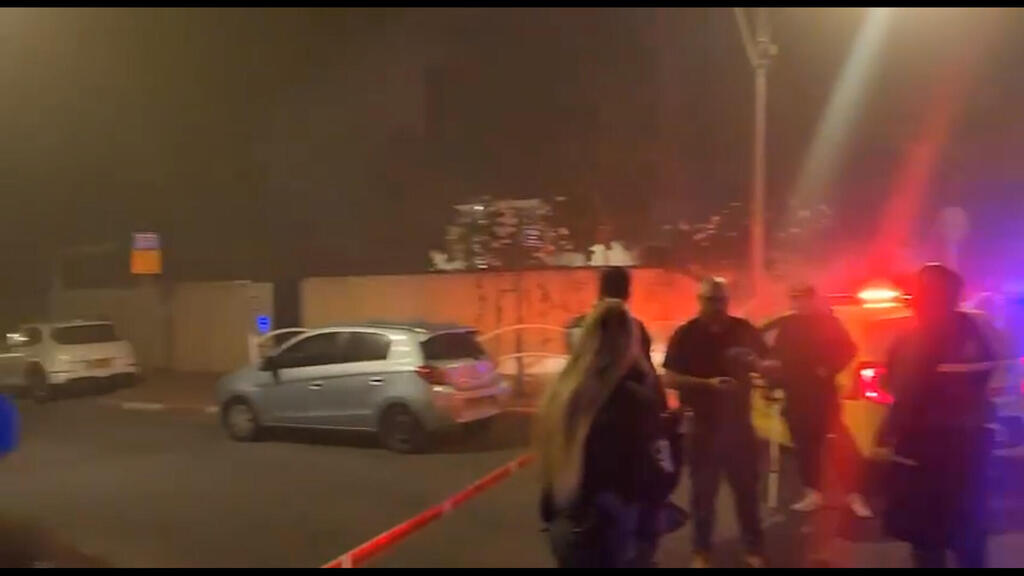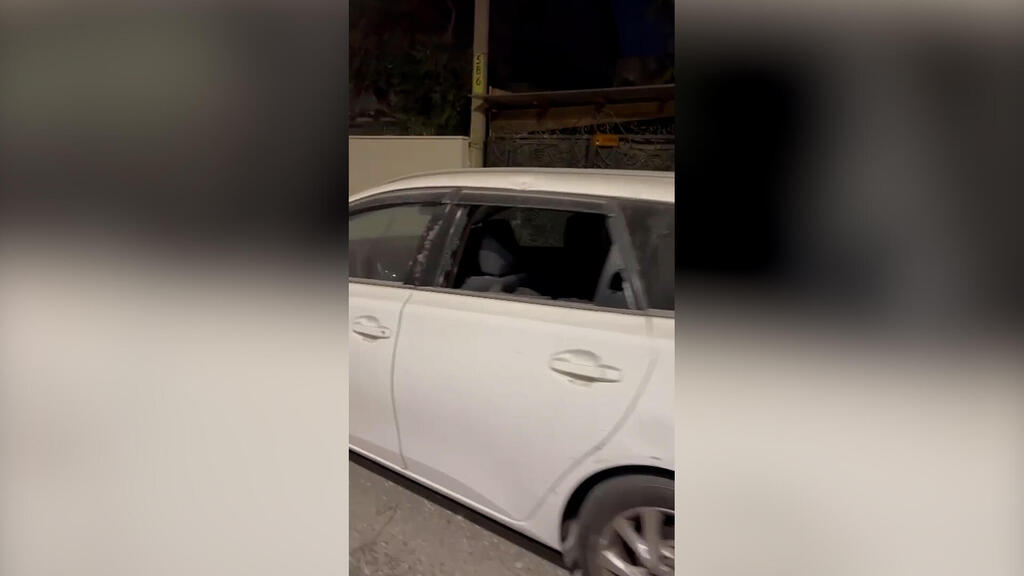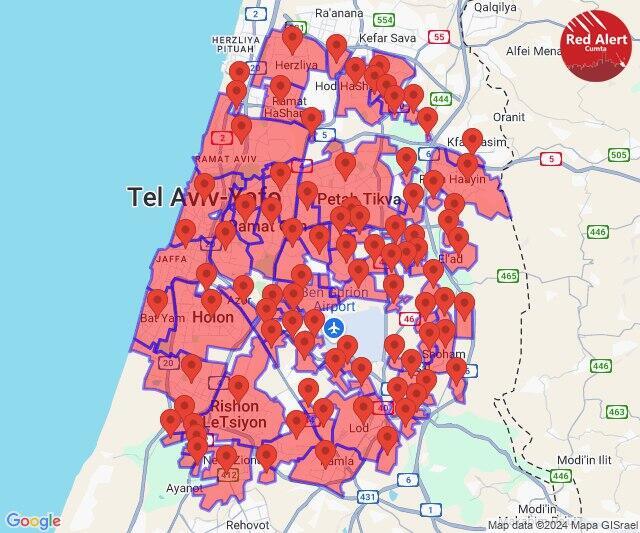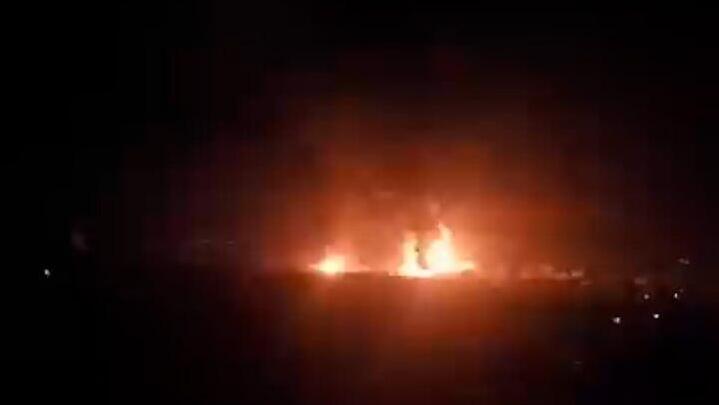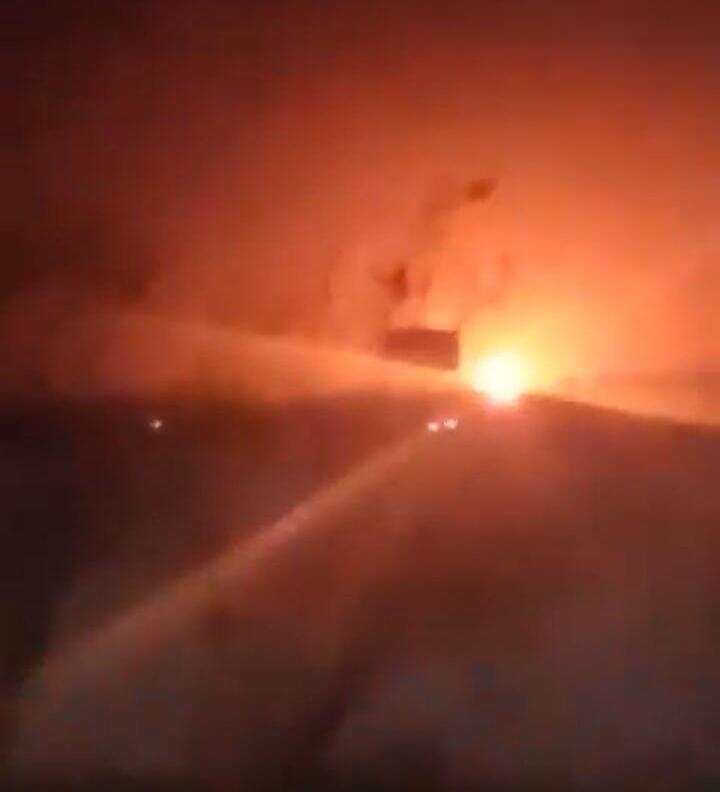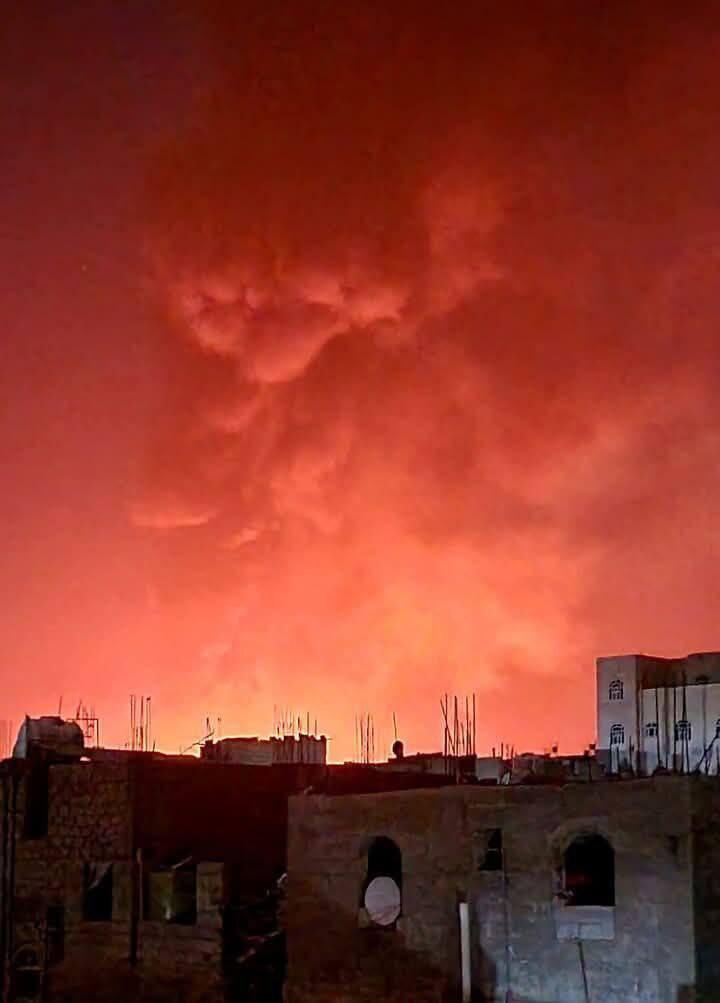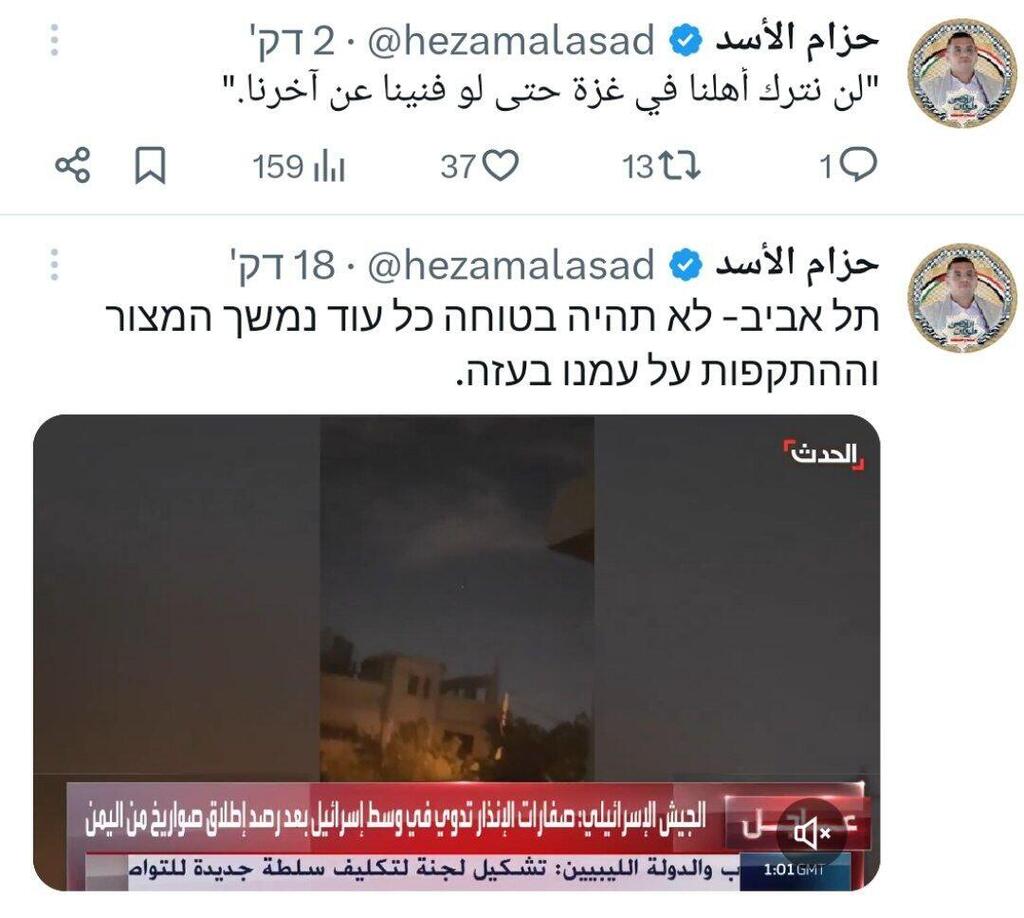Getting your Trinity Audio player ready...
Defense Minister Israel Katz made a personal threat against the leaders of the Houthi rebel group early on THursday after a ballistic missile was launched in Yemen. "Israel's long hand will reach you," he said "Anyone who lifts a hand against Israel, his hand will be cut off. Anyone you harms us will be doubly harmed. We will not accept missile fire on Israel or attacks on sea-routes. We will respond forcefully and not allow threats of fire on Israel to continue.
Air raid sirens jolted central Israel overnight, stretching from the Shfela region to the Sharon area, as the Arrow missile defense system intercepted a ballistic missile launched from Yemen, according to Israeli military officials. The alarms were triggered due to concerns over falling interceptor debris.
Magen David Adom (MDA) emergency services reported no injuries directly related to the missile strike, though several individuals suffered minor injuries while rushing to shelters, and others suffered from shock.
The site of the missile fragment impact in Ramat Efal
In Ramat Efal, near Tel Aviv, firefighters responded to reports of smoke following the missile interception. They found missile debris in a schoolyard, causing damage to parking cars and buildings but resulting in no casualties.
In response to the incident, Houthi official Nasruddin Amer posted on X about the sirens in the Tel Aviv area, declaring, "There is no safe place for Zionists."
Meanwhile, Israeli fighter jets targeted military sites belonging to Yemen’s Houthi forces along the western coast and inland regions, the IDF announced early Thursday, marking its first operation in Yemen since September. The operation was carried out under the direction of the Intelligence Directorate and Israeli Navy, following Defense Minister Israel Katz’s approval of strike plans.
The IDF said the strikes aimed to degrade Houthi military capabilities and prevent the use of targeted facilities for military operations, including the smuggling of Iranian weapons. The Houthis, aligned with Iran, have repeatedly launched UAVs and surface-to-surface missiles at Israel, most of which were successfully intercepted, according to the military.
Israeli jets strike Sanaa, Yemen
"The IDF conducted precise strikes on Houthi military targets in Yemen - including ports and energy infrastructure in Sana'a, which the Houthis have been using in ways that effectively contributed to their military action. Israel will not hesitate to act in order to defend itself and its citizens from the Houthi attacks," IDF spokesperson Daniel Hagari said in a statement.
IDF spokesperson's statement after the strike on Houthi targets in Yemen
(צילום: דובר צה"ל)
Yemeni media reported that two major power stations near the capital of Sanaa, Haziz to the south and Dhahban to the north, were struck, leaving much of the surrounding area without electricity. In addition, the Houthi-affiliated Al-Masirah channel reported strikes on oil facilities in Ras Issa and the port of Hodeidah, where multiple locations were targeted.
Over the past year, the Houthis have operated under Iranian guidance and financial support, often collaborating with Iraqi militias to attack Israel, disrupt regional stability, and threaten global freedom of navigation, the statement added.
“The IDF is determined to continue operating against all threats posed to the citizens of the State of Israel, wherever necessary,” the military said.
The operation, planned over several weeks, took place approximately 2,000 kilometers (1,200 miles) from Israeli territory, deep within Yemen. Dozens of fighter jets and additional aircraft participated in the mission, with aerial refueling enabling the extended reach of the operation.
Following the reports of Israel's retaliatory strikes, senior Houthi official Hezam al-Asad posted a threat in Hebrew on X, reading, "Tel Aviv will not be safe as long as the siege and attacks on our people in Gaza continue." In a subsequent tweet, he added, "We will not abandon Gaza, even if we die."
Meanwhile, the Houthi military spokesperson announced that an official statement would be issued in the coming hours.
Get the Ynetnews app on your smartphone: Google Play: https://bit.ly/4eJ37pE | Apple App Store: https://bit.ly/3ZL7iNv
This marks the eighth missile or drone attack by Yemen's Iran-backed Houthi rebels against Israel this month and the second in three days to trigger air raid sirens in central Israel. On Monday, a missile was intercepted before entering Israeli airspace, while earlier the same day, an Israeli missile ship intercepted a Houthi-launched drone over the Mediterranean Sea.
Following Monday’s attacks, the U.S. and UK launched strikes on the Houthi Defense Ministry headquarters in Sanaa and other targets in Hodeidah. Israeli officials called the coalition’s action a "step in the right direction" but warned it would not deter a forthcoming Israeli response. "There will be no restraint. They will pay a heavy price," an Israeli official said earlier this week, signaling plans for a significant retaliatory strike against the Houthis.
Thursday’s sirens in central Israel marked the first nighttime attack since October 7, 2024, the anniversary of the war, when a missile targeted the Tel Aviv area shortly before midnight.







